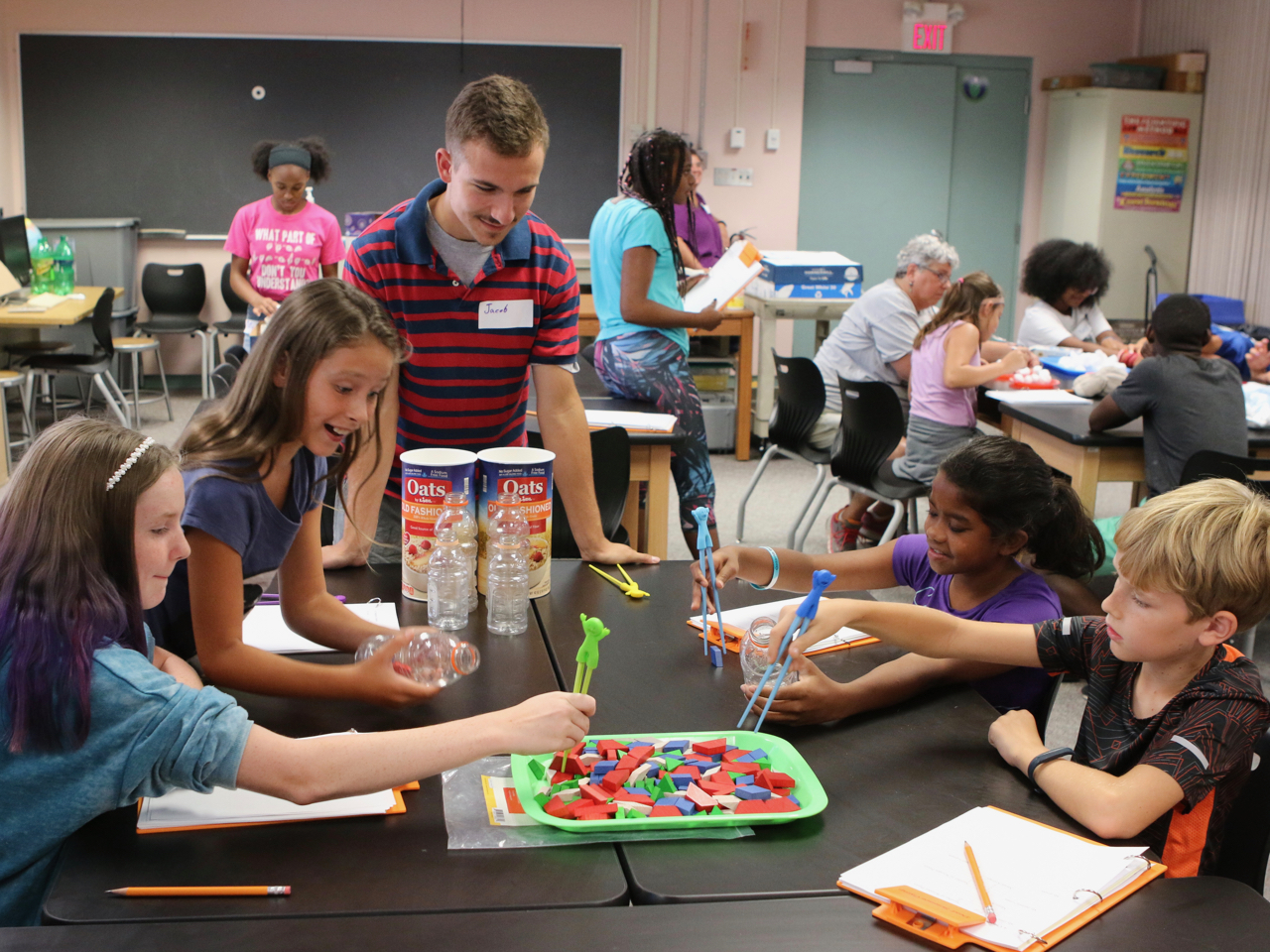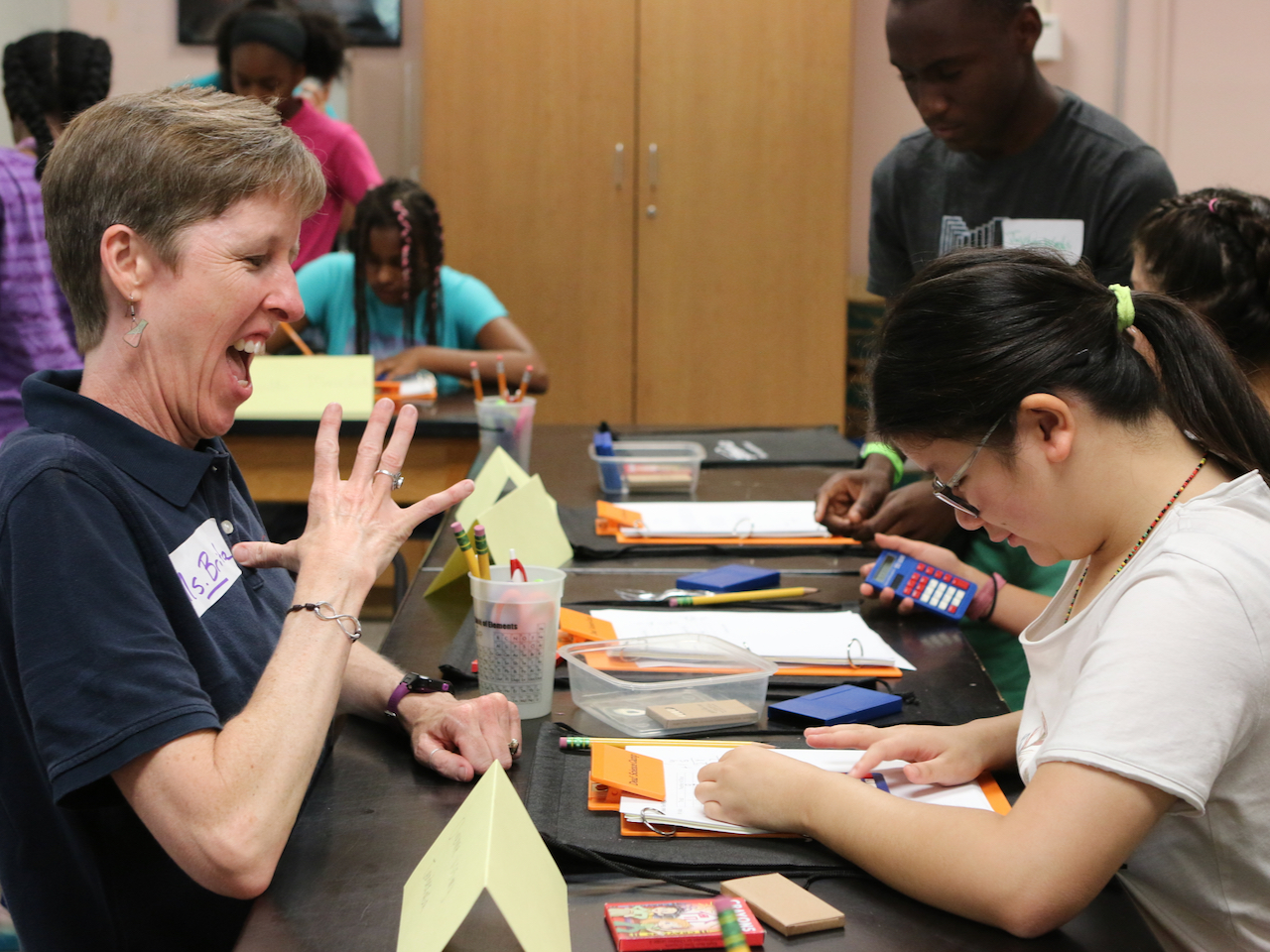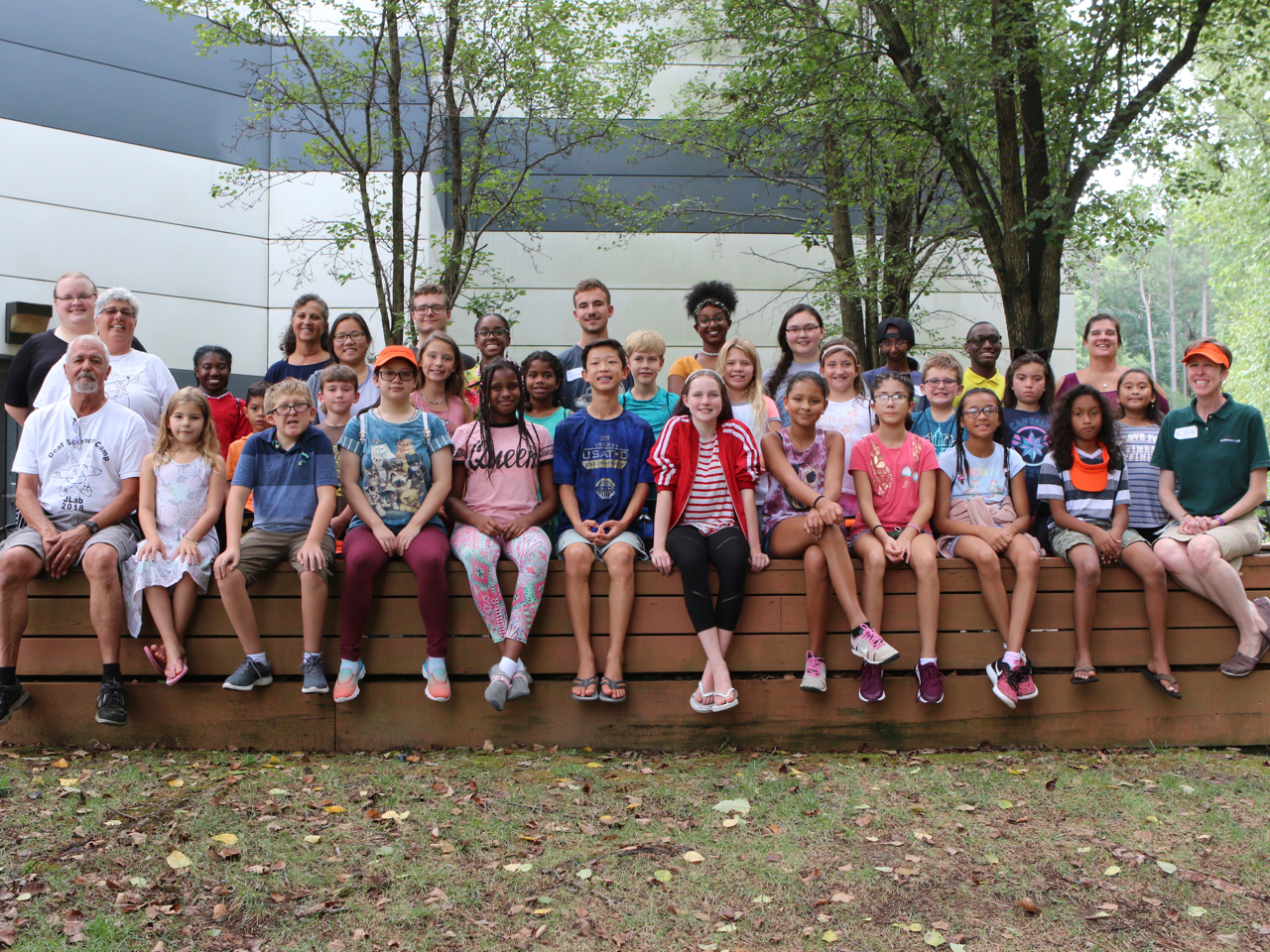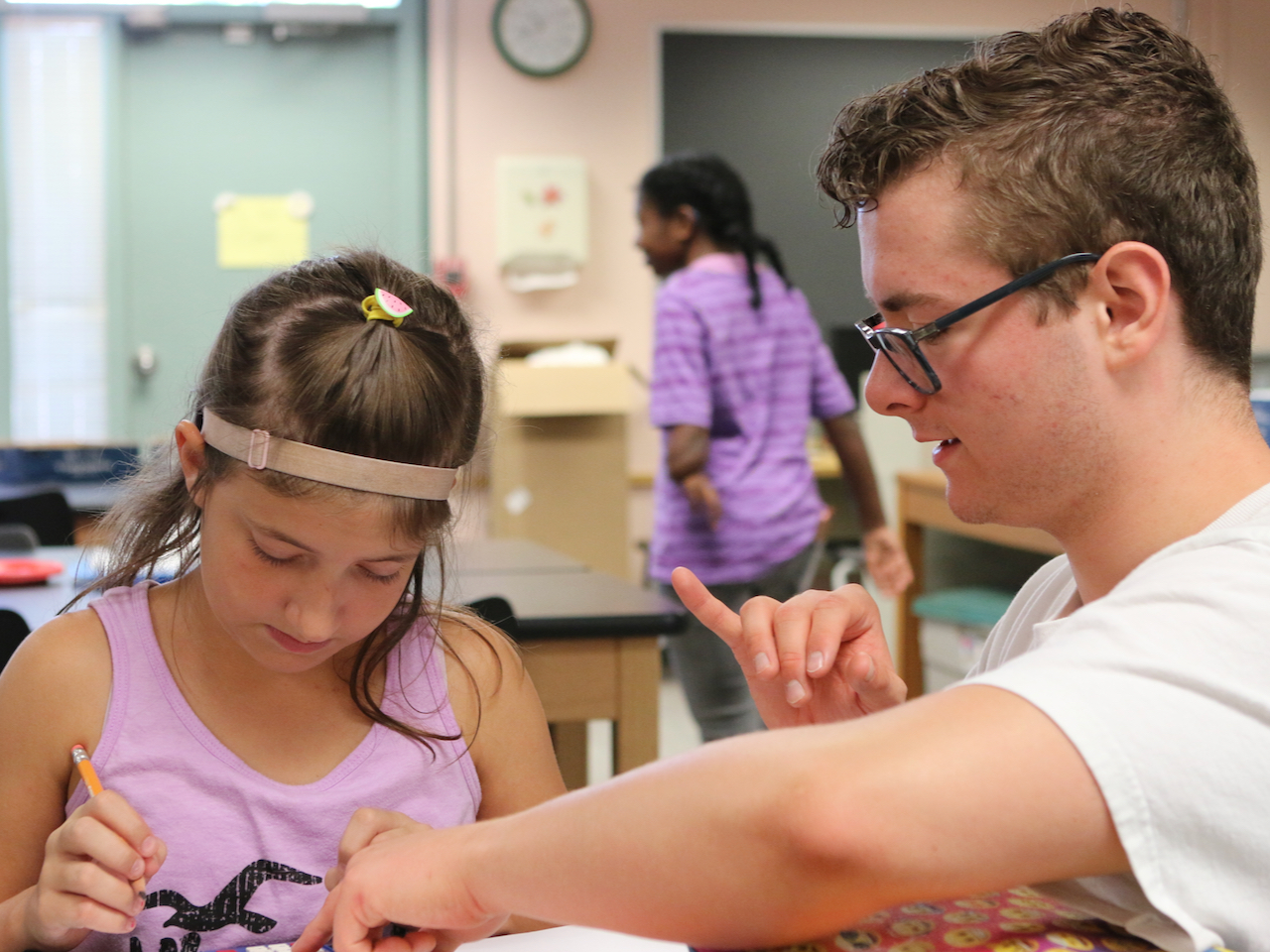Twenty students participated in Jefferson Lab’s Science Camp for Deaf and Hard-Of-Hearing Youth in August
A fun program of hands-on STEM activities, lively peer interaction and spirited mentoring brought deaf and hard-of-hearing students from Virginia and around the world to Newport News, Va., in August to participate in the Science Camp for Deaf and Hard-Of-Hearing Youth offered by the Department of Energy's Thomas Jefferson National Accelerator Facility.
The science camp is designed to meet the needs of rising fourth- through eighth-grade students who are deaf or hard-of-hearing, who are siblings of deaf or hard-of-hearing youth, or who are children of a deaf adult.
“We hope to reach students in this underserved community and really make a difference, providing a barrier-free environment for these students to interact with and learn about science concepts,” said Lisa Surles-Law, team lead for Jefferson Lab’s Science Education group.
Now in its sixth year, the camp was conducted primarily in American Sign Language, with three days conducted in ASL only, and two days featuring both ASL and voice. Fifteen students attended all five days of camp, and another five joined in on days where both ASL and voice were used. This year also saw the first international student to attend the camp.
“Six years ago, never in my wildest dreams did I think the camp would expand the way it has, and it’s just amazing that we are still here and growing,” said Brita Hampton, camp founder and coordinator.
Each year, the camp offers hands-on activities that emphasize math and science concepts. For instance, this year, the students studied engineering with pasta, experimented with cyanotype photography and constructed a roller coaster designed to keep its riders safe. But Hampton’s favorite new activity featured an opportunity for the students to make their own chocolate bar.
“The activity is a fun way to study the concept of the states of matter,” Hampton explained. “We assisted the kids in making their own chocolate bars with their favorite toppings.”
In addition, the students were assisted in each activity by camp counselors in high school and college who themselves are deaf, hard of hearing or have deaf or hard of hearing family members. The students also interacted with camp mentors in the STEM fields, including a college professor who spoke with the students via video conference.
“We had a whole new group of mentors this year, all of whom are successful in their chosen fields,” said Hampton. “We hope these role models inspire the kids to pursue whatever they are interested in, without fear of being held back.”
The Science Camp for Deaf and Hard-Of-Hearing Youth is free for all attendees. The camp is limited capacity, and registration typically opens in the spring on a first-come, first-served basis.
Contact: Kandice Carter, Jefferson Lab Communications Office, 757-269-7263, kcarter@jlab.org





